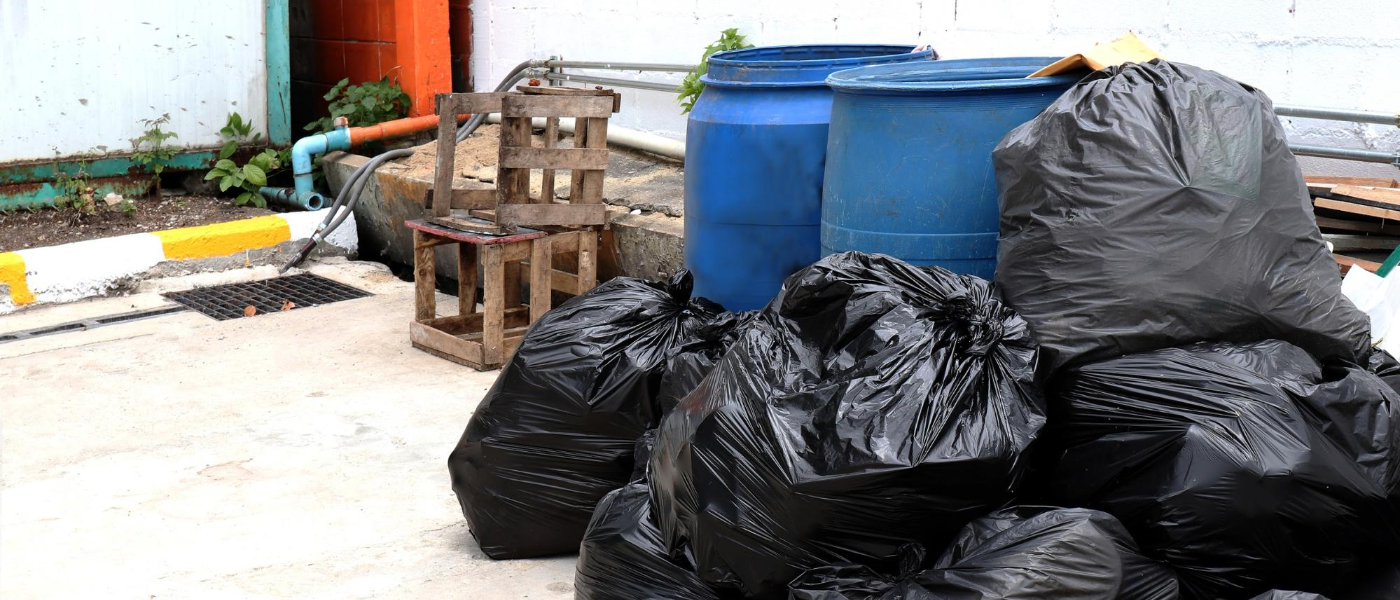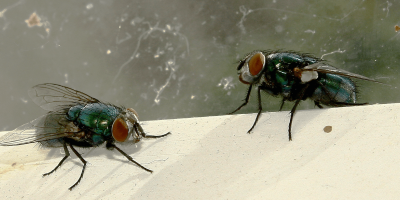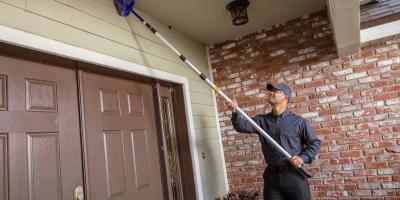How to Keep the Trash from Entering Back onto Your Facility

The sun’s gone down, it’s getting late, and as you’re locking up for the night you come face to face with a masked bandit. No, you’re not being robbed for the money in your wallet—those fluffy little critters with mask-patterned facial fur are raccoons, and they’ve come for the trash in your dumpster.
And they’re not the only ones...
Trash Talkers
Raccoons are the largest, most noticeable and most destructive (even if they are the cutest) among the critters ready to gang up on your trash containers if you aren’t following proper sanitation procedures. Insects such as ants, cockroaches and flies, as well as rodents (rats and mice, predominantly), all consider trash bins with open lids and doors to be an open buffet.
Ants
Ants are the smallest in stature among the garbage thieves, but their impact is anything but tiny. All it takes is one stray scout ant to detect a trail of crumbs leading into your business, and the next thing you know it’ll take more than store security to get them all to leave. Not only do ants gross out customers, some species such as carpenter ants can do almost as much damage as termites.
Cockroaches
Cockroaches are hungry little critters, but they have a taste for more than just food scraps. Roaches love to nibble on the glue that holds corrugated boxes and grocery bags together, so even improper disposal of cardboard and paper products can be an invitation to these squirmy little vermin. Cockroaches chew up and destroy property, spread disease, and the sight of even one roach will have customers labeling your business as a two-star roach motel in no time.
Flies
Flies are the bane of restaurant kitchens everywhere, but even if your business doesn’t traffic in foodstuffs, the little winged nuisances can still infiltrate your establishment to the chagrin of employees and customers alike. Flies will find the smallest scrap of leftover lunch to lay their eggs in, which will hatch into squirmy little stomach-churning maggots in no time. Those maggots quickly grow into mature flies; then commence to spreading the vast catalogue of fungal and bacterial diseases they carry on their arms, legs and feet.
Rodents
Finally, there’s the Goldilocks of damage-inflicting pests: rodents. Big enough to do considerable damage, but small enough to evade detection until their numbers are out of control: both rats and mice are scavengers by nature. They thrive in close-knit business districts, like those you’ll find nestled in quaint towns all across New England. Rodents carry deadly diseases, such as rabies and even bubonic plague, so they’re even more of a health risk than most of the other creatures you’ll find munching on tossed-out leftovers.
The Best Defense: Carry and Conceal
Whether your business sells pasta, pastries or patio furniture; the key to reducing and preventing trash-hungry pests is to follow two key practices: Carry refuse to designated areas and receptacles and conceal it from unwanted foragers by ensuring all covers, lids, doors and other barriers are closed tight.
It’s also important to tie trash bags so that no air can get in or out—so no bugs can get in or out either. Sprinkling a little ammonia in with used coffee grounds will do wonders as well. Finally, maintaining routine by scheduling garbage removal services is critical, so pay your waste management bills on time.
And don’t forget to clean your trash areas regularly! It’s remarkable how many businesses seem to neglect this one essential piece of housekeeping.
However, even the best defense can’t always stand up to nature’s offense. As soon as you notice any signs of intrusion, from creepy crawlies in the trash can to those infamous masked trash bandits near your dumpster, it’s important to call a pest control professional immediately before they can do any more damage than they might already have.
Visit our commercial pest control page and request a free consultation to protect your facility from pests.



